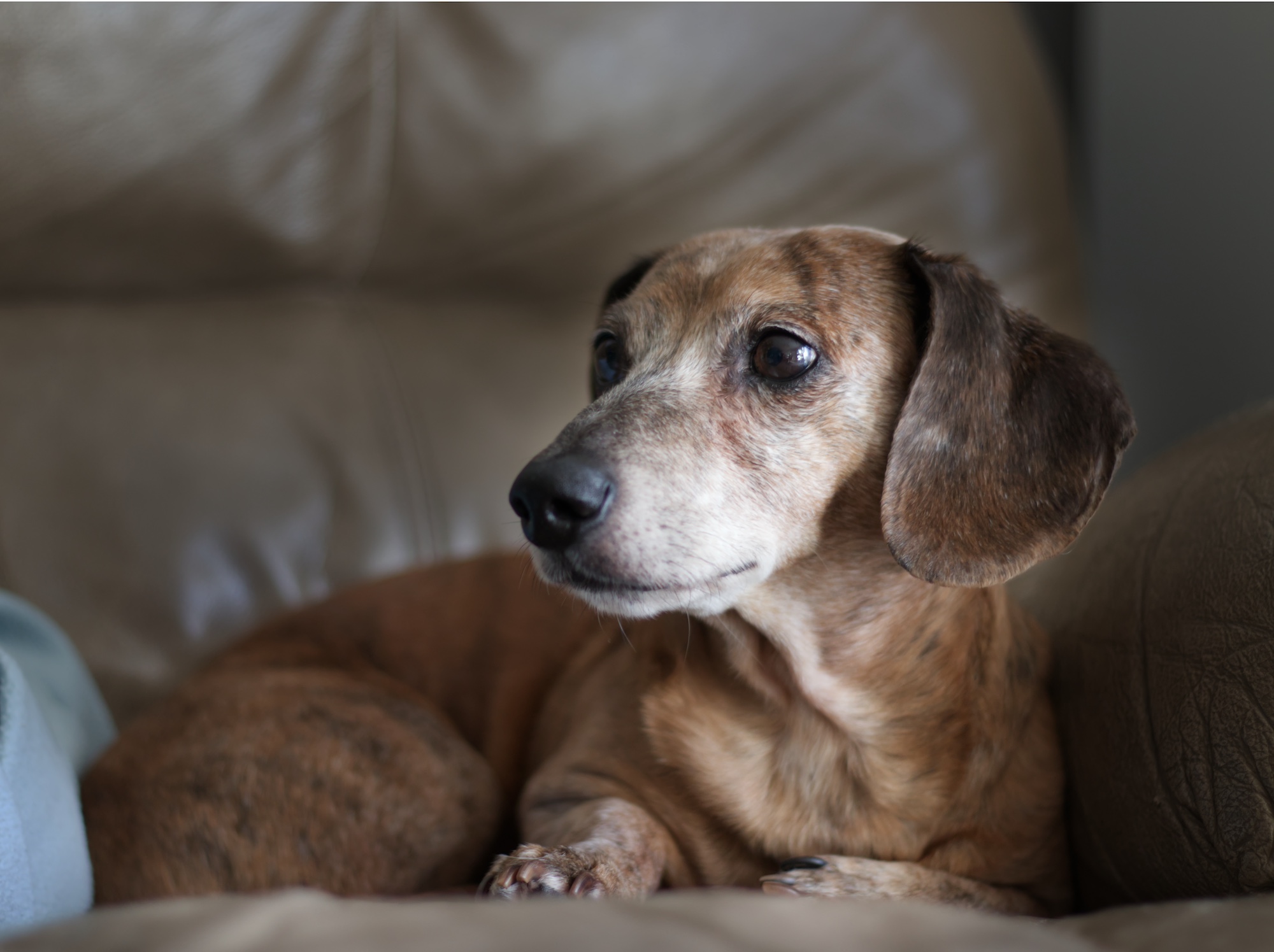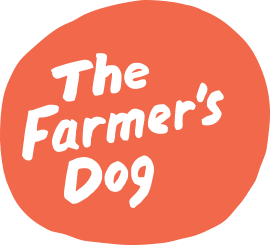When you imagine the joy of living with a dog, what comes to mind? Long walks through the neighborhood, with your pal sniffing trees to their heart’s content? Spirited games of fetch in the park? A rapturous, tail-wagging welcome when you walk through the door after a day of work? This may all be ahead of you as a dog caretaker. But, inevitably, you will also hear a whoopee-cushion sound or smell something foul when there are only two living beings in the room, and you will know it must have been your dog who dealt it. This will be funny—but is it also a cause for concern? When it comes to Fido’s flatulence, how much is too much? The answer, as with so many dog-care questions, is: “it depends.”
Why do dogs fart?
Like people, dogs fart when they have excess gas in their intestinal tracts. This can result from digestion, bacteria in the colon, or swallowing air. Some amount of farting is normal (more on that later), and gassy dogs may also belch.
Dogs may swallow excess air if they eat or drink too quickly. Not only can this lead to farting or belching, but in some cases it can also lead to a painful and life-threatening condition called gastric dilatation-volvulus. If your dog is eating too fast, consider splitting their food up into more frequent meals and using a slow feeder. Your dog may be eating too quickly if they’re not chewing, if they seem to be swallowing as fast as they can, and especially if they’re coughing while eating.
 Changing a dog’s diet may bring about a temporary increase in flatulence. Dietary indiscretions can have this effect, too—if your dog grabs something off of the ground or from the garbage, even if it’s not poisonous, it may wreak some level of havoc on their digestive system. Feeding your dog a diet that doesn’t agree with them, perhaps due to an intolerance, may cause a more enduring uptick in gas. And any diet that’s not digestible enough may lead to sounds and smells that neither you nor your dog will particularly enjoy.
Changing a dog’s diet may bring about a temporary increase in flatulence. Dietary indiscretions can have this effect, too—if your dog grabs something off of the ground or from the garbage, even if it’s not poisonous, it may wreak some level of havoc on their digestive system. Feeding your dog a diet that doesn’t agree with them, perhaps due to an intolerance, may cause a more enduring uptick in gas. And any diet that’s not digestible enough may lead to sounds and smells that neither you nor your dog will particularly enjoy.
If you’re considering switching your dog’s food, we recommend The Farmer’s Dog. Following our transition tips can help make the switch smooth for them. It’s important to transition gradually to allow your dog’s gastrointestinal tract time to adjust to the new food—extra flatulence is just one of many possible drawbacks of a too-fast transition.
How much is too much for a dog to fart?
If your dog farts once in a while, don’t sweat it. That just means they have a digestive system. You fart too, after all.
It’s hard to put a number on what a “normal” frequency of farting is for a dog, although research of canine flatulence may offer clues. One 2005 study (authored by Dr. Ryan Yamka, who is currently the head of research and development for The Farmer’s Dog) found that participating dogs had an average of between 9.9 and 13.5 “episodes of flatulence” per day—the higher number occurring among dogs who ate a single meal per day, and the lower number coming from those who split their food between two meals. While we can’t draw conclusions about dogs in general based on the paper, it does provide a detailed record of how often the six dogs involved passed gas under the conditions of the study.
The authors of a 2001 study titled “Development of a technique for the in vivo assessment of flatulence in dogs” wrote that “the variability in flatulence patterns that we detected, both within and among dogs, is consistent with data from human studies, indicating that there is appreciable intraindividual variation and enormous interindividual variation in the frequency, volume, and gaseous composition of flatus.” In other words, how often any individual dog farts, and how much and what type of gas they emit, will vary. The bottom line is that, if your dog is farting about as much as they usually do, and the smell isn’t terrible, they’re probably fine.
Certain foods may make dogs gassier, the same way that they can cause flatulence in people. These can include dairy products, foods high in fermentable fiber, or seasoned human foods that they shouldn’t have eaten. To be clear, some foods that are high in fiber—for example, broccoli or cabbage—can lead to increased flatulence, even though they’re healthy in the proper quantities. That’s one of many reasons that you should introduce new foods to your dog’s diet gradually.
So when should I see a vet about my dog’s farting?
The main thing to look out for is a change: If your dog is farting a lot more than you’re used to, or their farts suddenly smell awful, it’s a good idea to call a vet and get them checked out. If they show other signs of illness—they’re in pain, you see blood in their stool, or they lose their appetite, for example—consider that call to the vet urgent.
Do dog farts always smell or make noise?
Just like humans’, dogs’ flatulence may leave an odor or result in a loud noise—but you also might not notice it.
Is a dog’s flatulence ever a sign of a medical problem?
While there’s no need to panic about your dog farting from time to time, more frequent flatulence—or farts that smell alarming—can be signs of illness, especially if they’re accompanied by other changes like those we mentioned earlier. That’s why you should bring your dog to the vet if you see any worrying shifts in their behavior.
While many causes of farting are harmless, excessive flatulence can also be a sign of conditions that need treatment. These include:
- Inflammatory bowel disease
- Pancreatitis
- Food allergies or sensitivities
- Intestinal parasites
- Colitis
- Rarely, gastrointestinal cancers
Don’t jump to the conclusion that your dog has some awful disease if they start farting more. It’s much more common for farting to be caused by benign factors. Even if your dog is sick, medication and other measures can often get them back to good health. But, to be safe and keep you both as comfortable as possible, bring your dog to the vet for a checkup if you notice anything different.
How can I help my dog fart less?
Some dog flatulence is inevitable and normal. But for dogs who fart a lot, there are ways to cut down. (As always, consult your veterinarian for specific medical advice).
Feeding your dog a more digestible food might result in fewer farts, or farts that aren’t as stinky, because less food will reach their colon to be fermented by their gut bacteria. The Farmer’s Dog, for example, is clinically proven to be highly digestible. More generally, working with your veterinarian to find the right diet for your dog—taking into account any allergies, sensitivities, or medical conditions—can reduce the frequency of unpleasant gastrointestinal events. In a 2022 survey, 21% of our customers reported that their dogs passed gas less frequently—and 53% reported higher-quality poops—after switching to our food.
Keep your dog away from things they shouldn’t eat—this means not only unauthorized treats off the street and out of the garbage, but also table scraps or other seasoned human food that you sneak their way. Make sure they’re eating their complete and balanced food at an appropriate pace—a slow feeder can help with this, and can also provide your pup with valuable mental stimulation. And give them an appropriate amount of exercise. This will benefit them in many ways, one of which is keeping their digestive system moving.
In some cases, your veterinarian may recommend probiotics to aid your dog’s gut health.
If you follow these tips and watch your dog closely for any changes, chances are that, when it comes to their gastrointestinal health, you’ll be inhaling the sweet smell of success.










